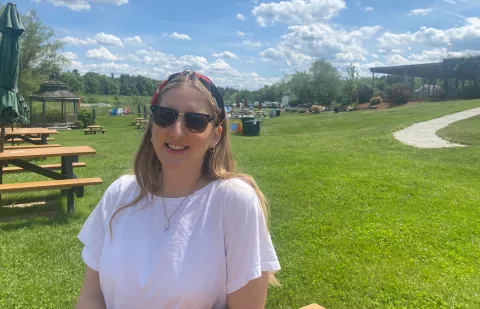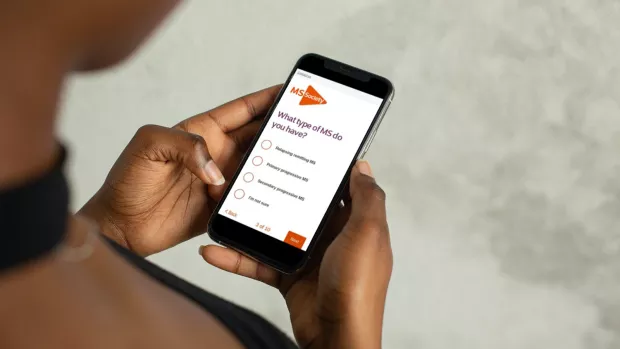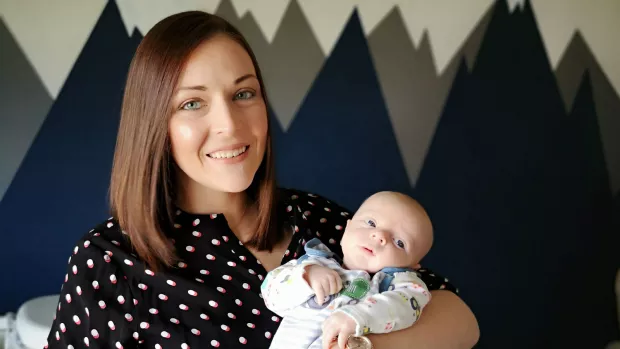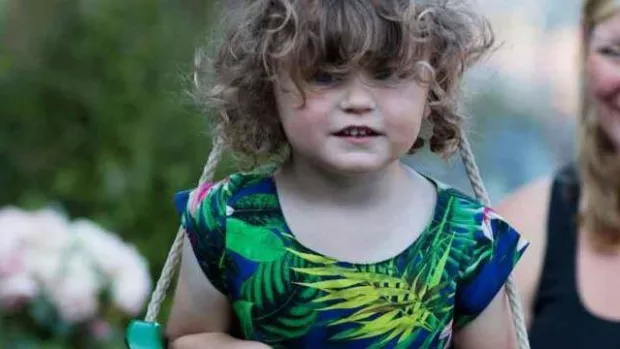
Choosing the right course
Emily shares how she navigated some big decisions in a milestone year.
I always thought turning 30 was going to be a big moment, but the year took an unexpected course.
I spent my birthday celebrating in the sun on holiday in Italy. The next month, I woke up to find that one of my legs had gone numb. I’d been managing my MS for years through lifestyle choices, but I knew this was a relapse and I needed to change course.
I had an MRI, some blood tests and discussed the results with my neurologist. My MS was now deemed ‘highly active’. She recommended a couple of highly effective disease modifying treatments (DMTs) for me to consider. I realised it was time to take a stronger approach.
Decision time
It felt overwhelming because the decision provoked some big life questions. Which treatment was most effective and how serious were the likely side effects? When did I want to have children? How would the different options fit with my work, travel, and lifestyle?
There was a mountain of information available, but ultimately it came down to some long conversations at the pub with my partner. He assured me that my health and happiness were the most important things, and he would support whatever I decided.
I have always believed that women should be able to live as they choose to. So I empowered myself to opt for a treatment that would give me the best chance to keep my choices open. I decided to start on natalizumab (Tysabri). It was considered the safest highly effective drug to take while starting a family.
Support throughout my journey
Quite soon after this we decided to try for a family. My MS team connected me to a nurse who specialised in pregnancy and supported me throughout my journey.
I took a positive pregnancy test the week before I started natalizumab (Tysabri). It felt terrifying at the time, but my MS team explained the risks and benefits, which can depend on each person's circumstances. My MS nurse was on hand to answer my questions and guide me every step of the way. I initially had infusions every four weeks and then moved to every six weeks during the later stages of my pregnancy.
The staff were so friendly that it made the whole experience less scary. I got to know some of the other patients and picked up little tips – like packing snacks to keep your energy levels up, drinking lots of water to make it easier to get the cannula in and wearing comfy clothes. You can be in there for a while. My employer’s been extremely supportive, and I scheduled the treatments on a Friday so I could rest over the weekend.
The highs
Regardless of the relapse, it turned out to be the best year yet.
I had amazing care from both my London based MS team and my local hospital’s maternity unit. I felt that they were all working together to empower me to believe in my body throughout pregnancy.
I had more regular scans and check-ups during my pregnancy which was reassuring – it was lovely to see the baby getting bigger and stronger. I’m so grateful I was able to manage my condition effectively, not experience any relapses and give birth to a beautiful baby girl.
The lows
There were some low times too. I struggled with fatigue throughout my pregnancy, and with nausea in the first trimester. I also got COVID-19 very early on. That was before I felt comfortable sharing the news of my pregnancy with family and friends. So I recall a particularly worrying week spent in my bed with only my partner to talk to.
It was difficult to tell sometimes whether symptoms were related to MS or pregnancy. That was disconcerting, particularly in the second and third trimesters when my body felt different every day. I found speaking to the midwives and my specialist pregnancy MS nurse really helpful.
Changing treatments
As planned, I switched to ocrelizumab (Ocrevus) three months postpartum after the tests confirmed it was the right treatment for me. It’s going well so far.
I’ve always found it encouraging to hear other people’s experiences, so I hope that by sharing this it might help others. I’d encourage anyone with MS to speak as openly as they feel comfortable doing – it’s powerful for our community. I would also advise signing up to the MS Pregnancy Register to try and improve things for women in the future.





